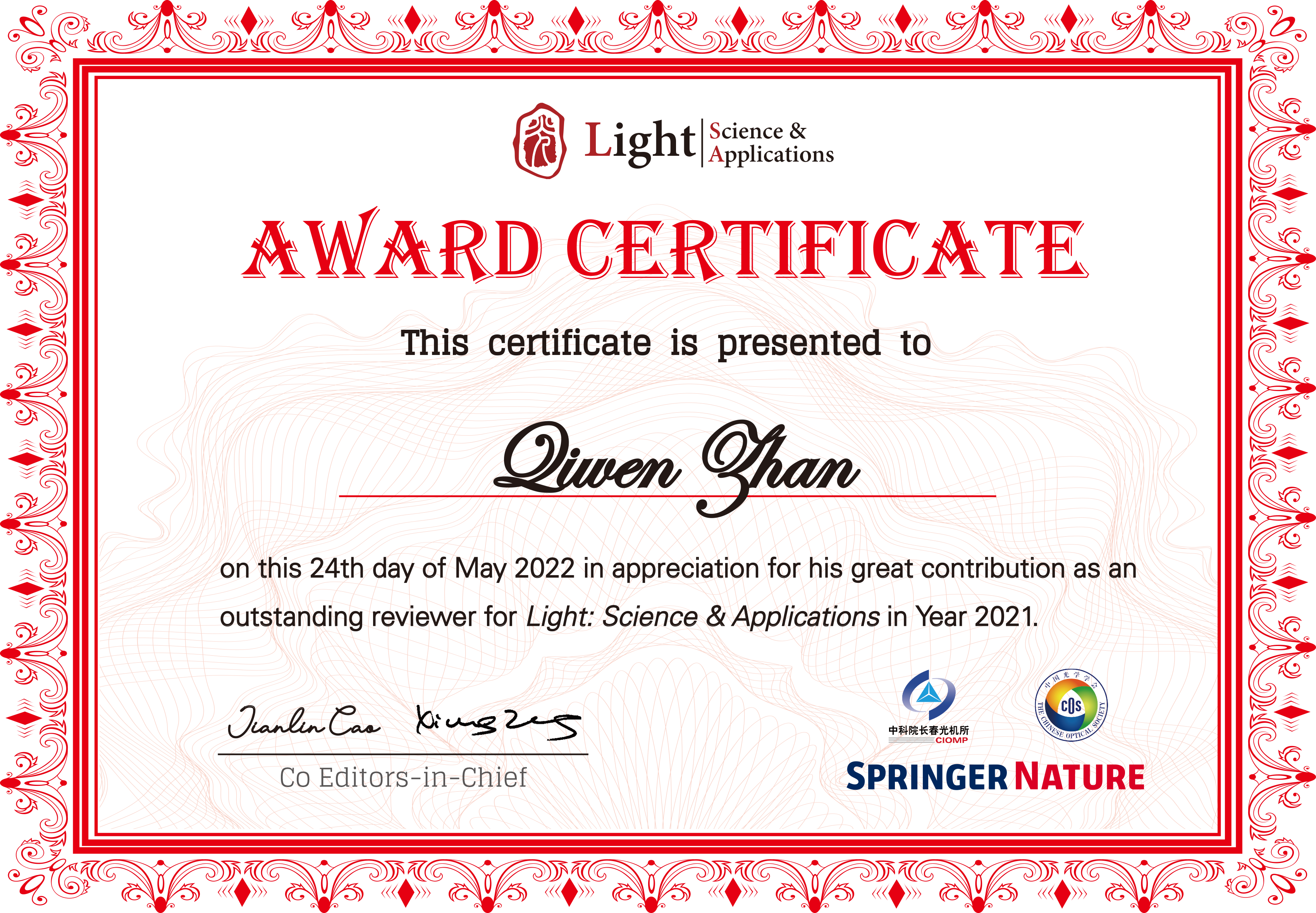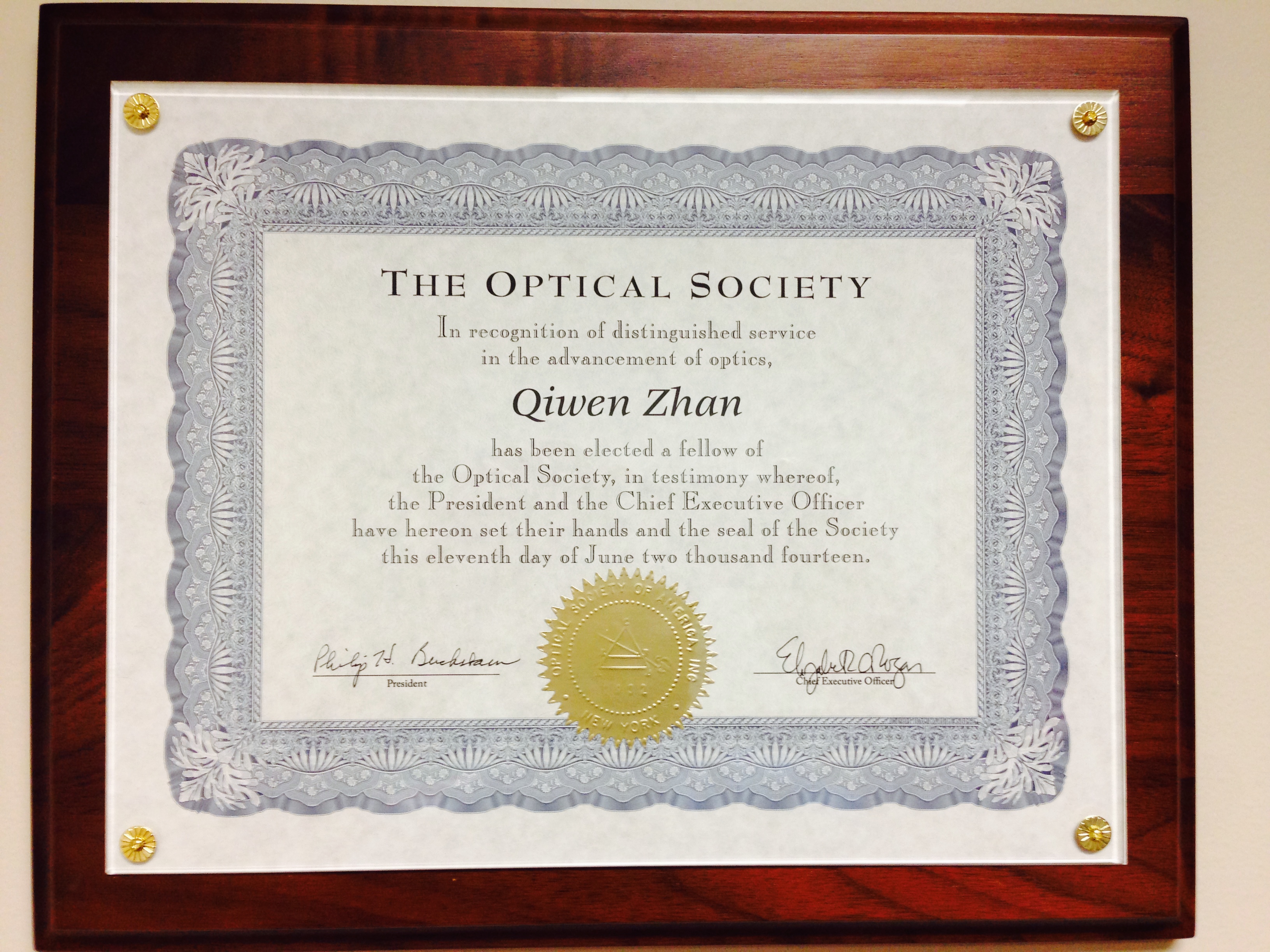Dr. Qiwen Zhan
Dr. Qiwen Zhan is National Distinguished Professor of Nanophotonics at the University of Shanghai for Science and Technology. He received BS in Physics (optoelectronic) from the University of Science and Technology of China in 1996 and Ph.D. in Electrical Engineering from the University of Minnesota in 2002. He was appointed assistant professor (2002), associate professor of life tenure (2008), full professor of life tenure (2012), founded Nano Electro-Optics Laboratories of Dayton University, and was the director of the Fraunhofer Center at Dayton University. The main research fields include light field manipulation and its interaction with micro/nanostructures, nanophotonic, biophotonic, super-resolution imaging and nanostructure characterization. Currently, he holds various editorial roles, such as being an Associate Editor for Optica, a journal published by the Optical Society of America (OSA), and serving as an Associate Editor for Photonix, the journal of the Chinese Society of Optical Engineering. Additionally, he is a member of the editorial boards of Scientific Reports, a publication of the Nature Publishing Group, and the Journal of Nondestructive Evaluation, published by Springer Nature. Qiwen Zhan also serves as a director for the Chinese Society of Optical Engineering. Due to pioneering work in optical field manipulation and nanophotonics, Qiwen Zhan was elected as a Fellow of the International Society for Optics and Photonics (SPIE) in 2012 and as a Fellow of the Optical Society of America (OSA) in 2013. He has published over 200 research papers in prestigious international journals such as Advances in Optics and Photonics, Nature Photonics, Nano Letters, Physical Review Letters, Nanophotonics, Advanced Optical Materials, Optics Express, Optics Letters, and Applied Physics Letters. These papers have been cited over 18,000 times, with the highest number of citations for a single paper exceeding 3,500. Additionally, he has published 1 book, 9 book chapters, and possessed 6 US patents/patent applications. Notably, his work in high-resolution ellipsometric imaging and near-field Raman technology has been transferred to and developed by industrial companies in the United States and Germany.



























